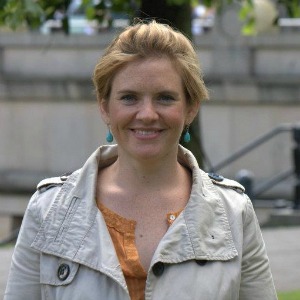Lara Renton’s career has taken her from Sydney to Tonga to The Hague where she has worked on some of the International Criminal Court’s biggest cases.
Ms Renton talks to Alice Ramsay about working as a trial lawyer at the ICC and offers insights on how others can do the same.
To continue reading the rest of this article, please log in.
Create free account to get unlimited news articles and more!
How did you decide to pursue a career in international law?
I enjoyed international law when I studied it as part of my law degree, but I got a summer clerkship then went on to be a graduate solicitor at a commercial firm for a few years before working for a Federal Court judge for a year. I then took an AusAID Youth Ambassador for Development position in the Kingdom of Tonga.
While I was in Tonga I applied for a position in the Prosecution Division of the Office of the Prosecutor at the ICC and was lucky enough to get it. It was a bit more a happenstance than a calculated decision on a predetermined career path. I feel very much like I was in the right place at the right time.
What is your role and what are you working on?
I’m an associate trial lawyer in the Office of the Prosecutor. I’m currently part of a team of about eight lawyers working on the Kenya case (Prosecutor v Ruto & Sang), which is nearing the end of the prosecution phase of the trial.
The work really varies. We do a lot of evidence review, disclosure management, drafting, preparing and sometimes we take witnesses and make oral submissions in court. We do whatever needs to be done to make sure the case proceeds.
What are the best parts of the job?
Writing and appearing in court. Both are totally different, yet very satisfying.
I love writing. I really like working through issues, formulating arguments, then refining them to make them persuasive and to position our argument in the best way.
Being in court is much more immediate. There’s not the luxury to sit back and mull over things quite so much. But when you connect with a witness, or you have facilitated their testimony and added evidence to your case – it’s a pretty amazing feeling.
What does it feel like to appear in court at the ICC, surrounded by judges, legal teams, translators and being streamed live over the internet?
Sometimes I get a bit of a last-minute flutter of nerves. But then a strange sense of calm descends. I am focused on what I have to do and I forget about everything else in the room – and the people in the public gallery or following online.
We have a very important mandate at the ICC: we strive to end impunity and achieve a measure of justice for victims, but I think it’s important to remember that upholding the rule of law and achieving justice, in some form or other, are the functions of all courts. If you get too caught up with “this is the ICC”, you are forgetting the core aspect of what we all do as lawyers wherever we work.
What’s the hardest part of the job?
Remembering the bigger picture and the fact we carry a lot of responsibility gets me through the harder parts of the job and the grit of the day-to-day work.
Working in such a multicultural international environment is one of the best aspects of working here, but it's also a challenge working with people from so many different backgrounds. And, of course, you have to get used to a legal system, rules and regulations that you probably aren’t familiar with as there is only one ICC.
You’re also most likely to be living away from your friends and family, which can be hard. But ultimately it’s great; you live in The Hague in the middle of Europe and you are working for a remarkable organisation.
What would be your advice to people who would like to work at the ICC?
Consider applying to be an intern or joining our visiting professional program. Further study also doesn’t hurt.
There are opportunities for people with different educational and professional backgrounds – I consider myself to be a fairly practical lawyer. I’m not an academic. Both kinds of people are needed at these institutions. So, irrespective of your background, keep your ear to the ground and look out for any opportunities.
There is no one path that is going to guarantee you a job as a lawyer at the ICC. Do what you enjoy and hopefully, with a bit of hard work and persistence, you will be able to end up here if that is ultimately what you want to do.
Where do you see yourself in five years?
I love international law so I would really like to stay in or somehow connected with this field. It might be with the Australian Government, another international organisation or an NGO.
When it comes time to leave I’ll see which opportunities arise and hopefully land on my feet in an as challenging and inspiring an environment as I found here.
Alice Ramsay is an Australian writer and lawyer based in The Hague. This is the third article in a series of profiles of Australian lawyers working at The Hague.
The views expressed in this article are the personal views of the interviewee and do not necessarily reflect the views of the ICC and/or the United Nations.






